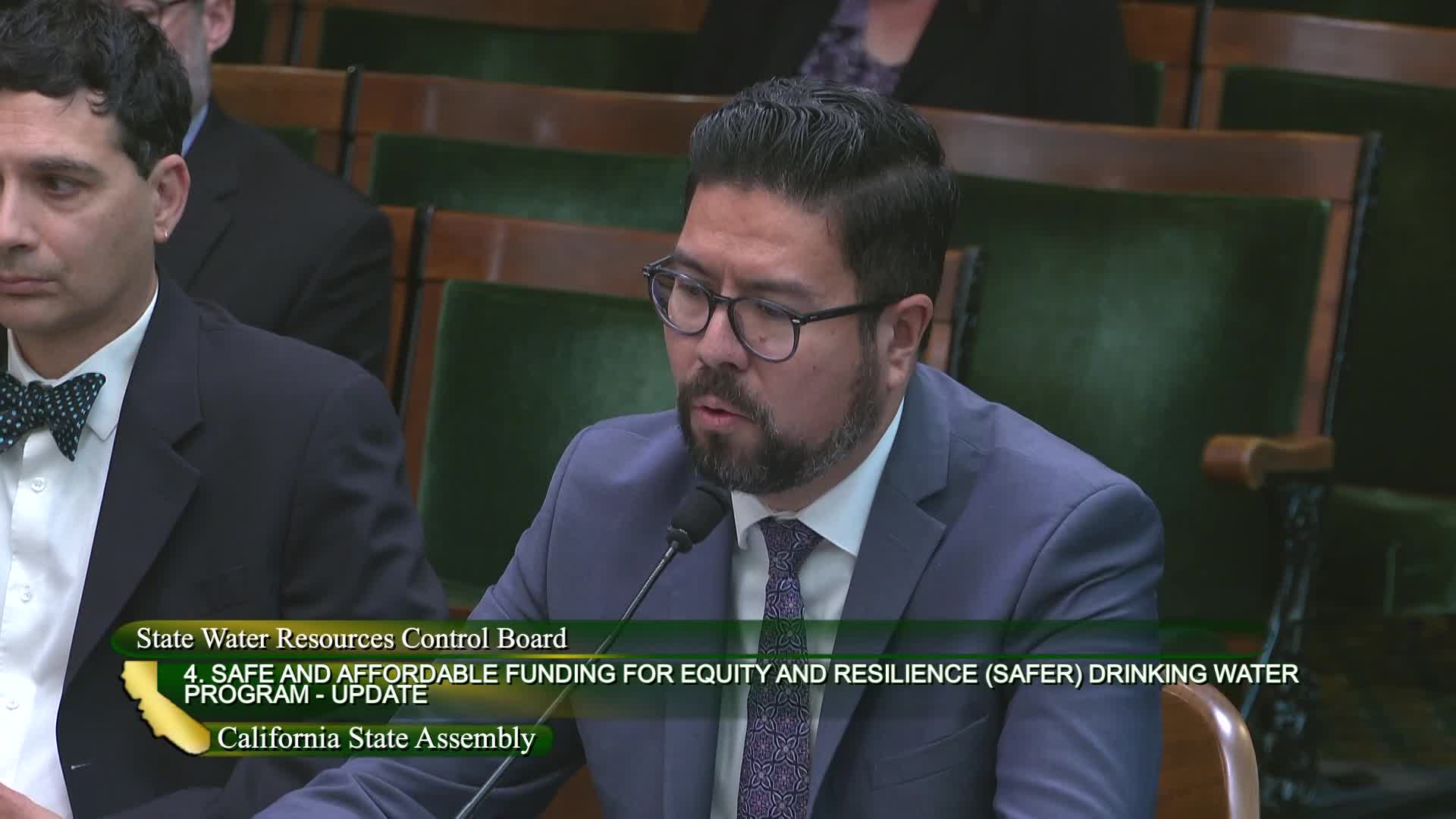Article not found
This article is no longer available. But don't worry—we've gathered other articles that discuss the same topic.
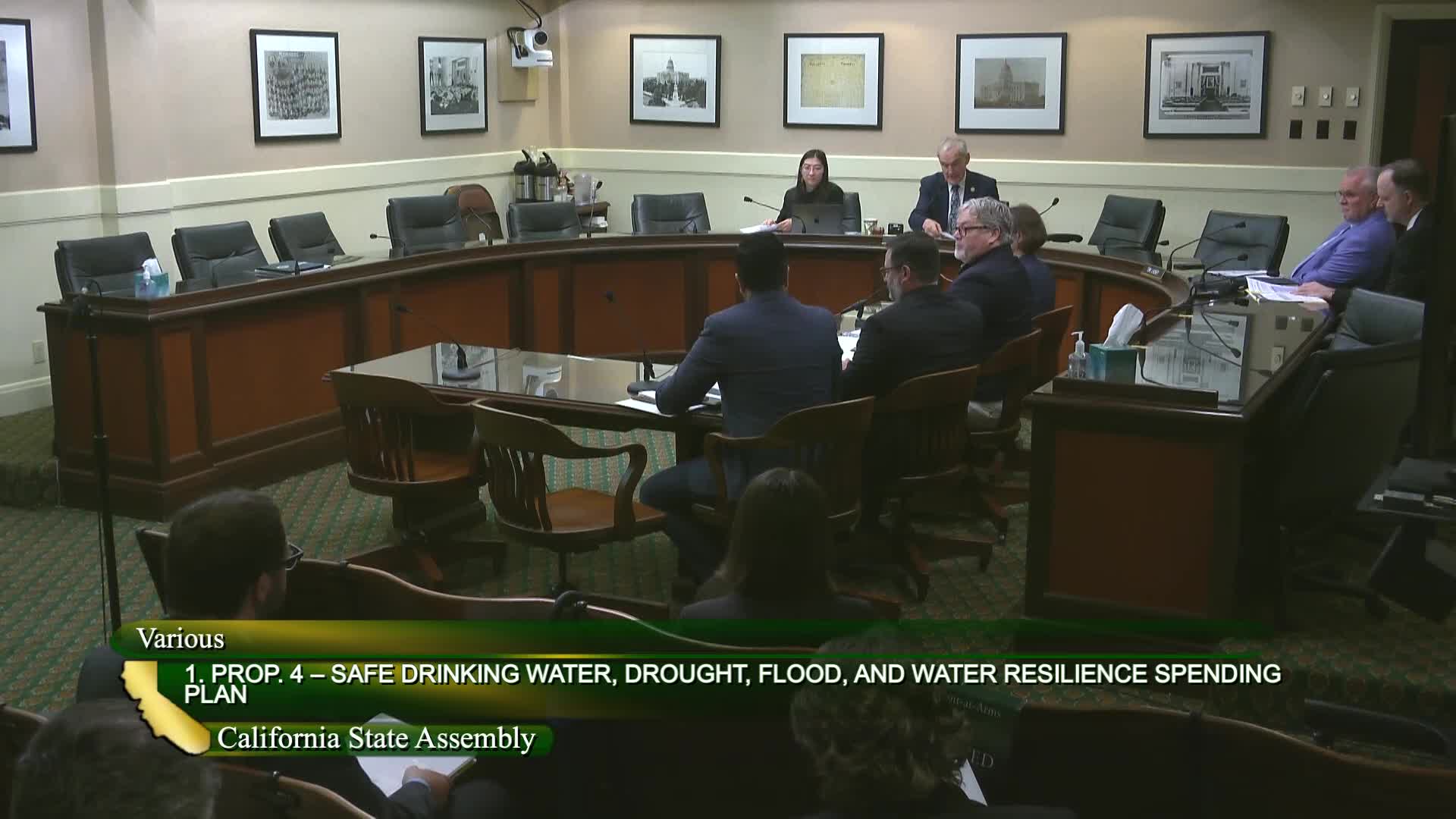
Assembly subcommittee hears administration—plan for Prop 4 water chapter, seeks oversight and staged spending
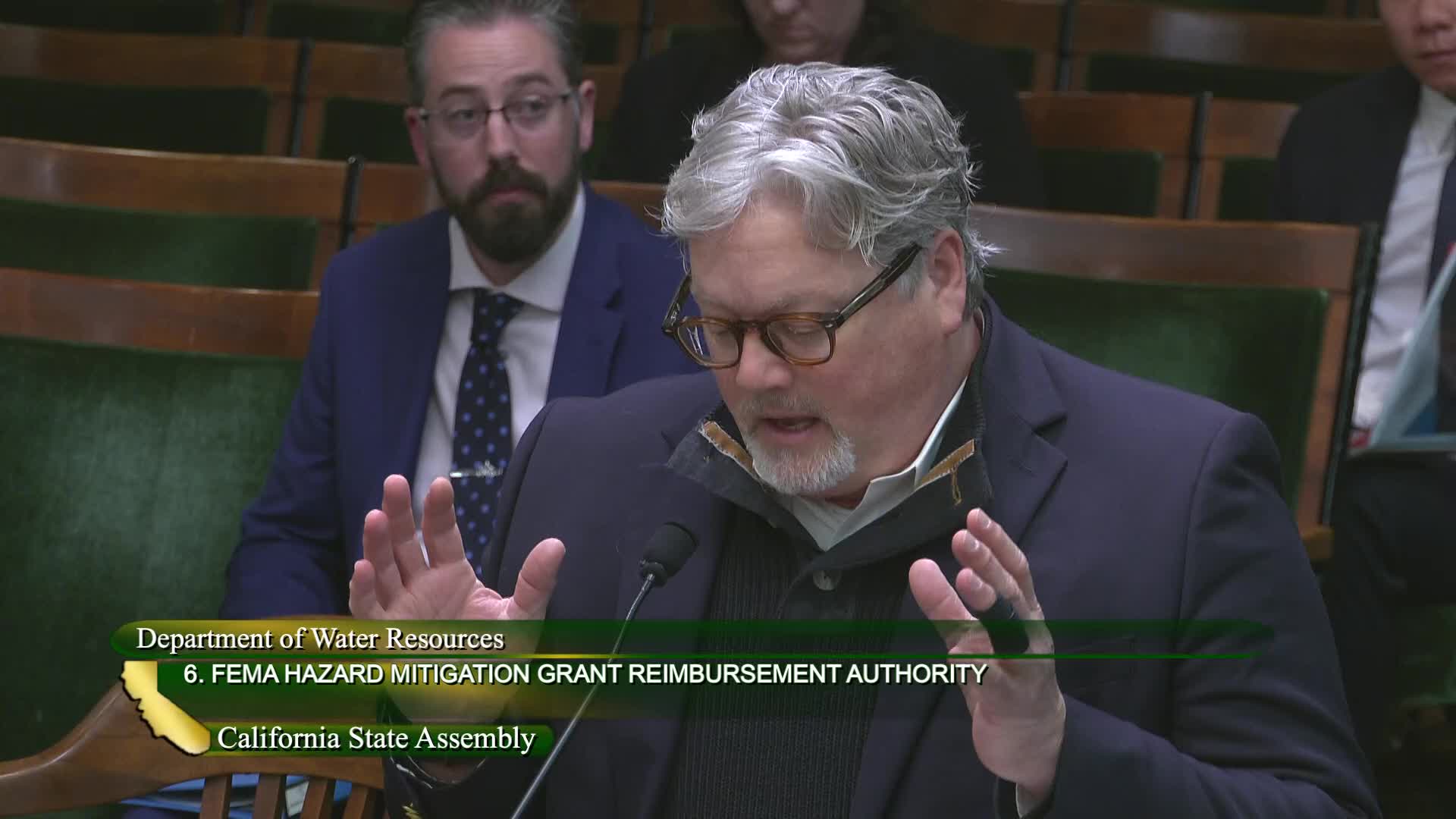
DWR pilots post-fire alluvial-fan flood forecasting with FEMA funds to guide emergency response
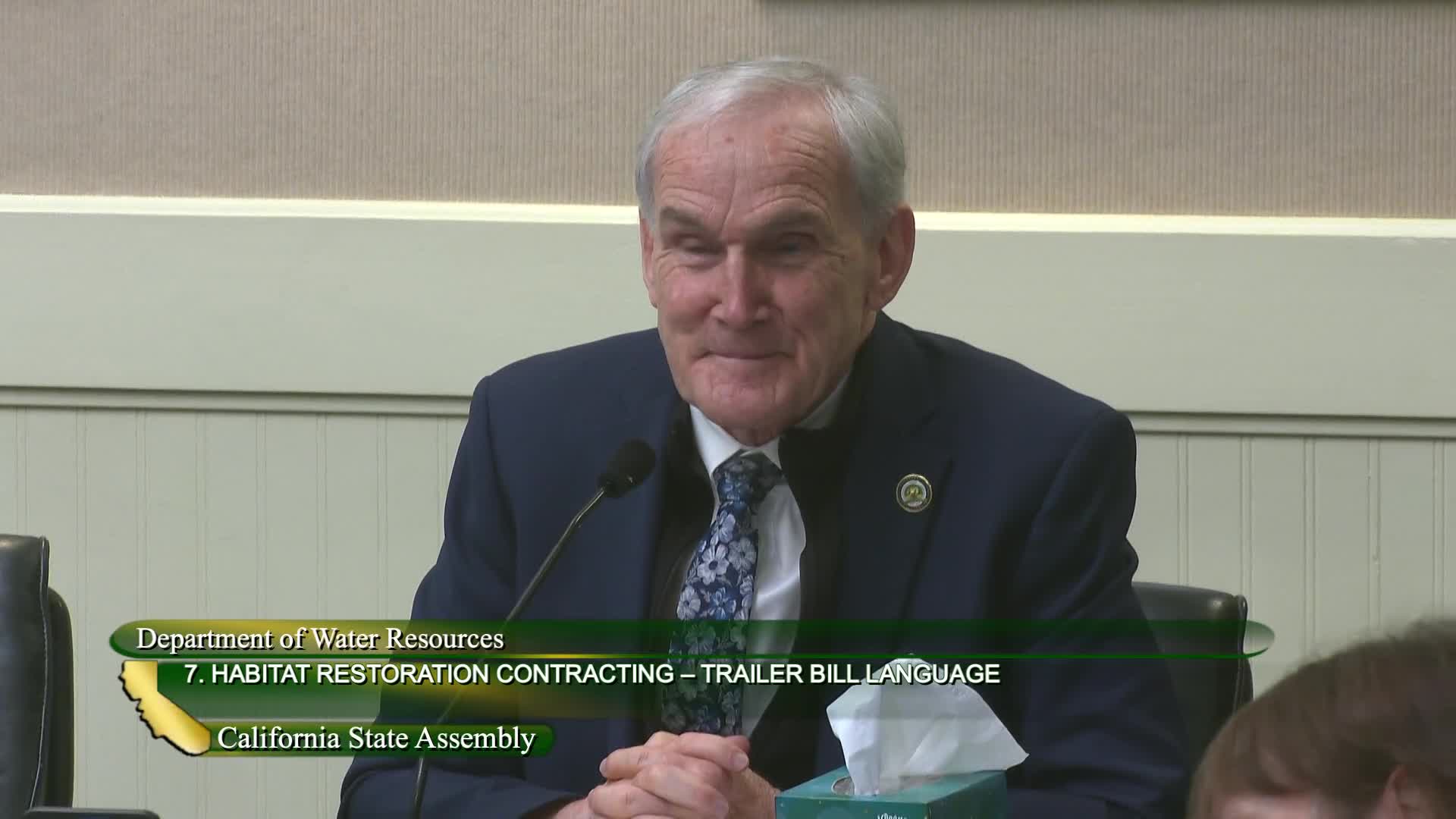
DWR seeks trailer bill authority to accelerate multi-benefit habitat projects with a "full delivery" contracting model
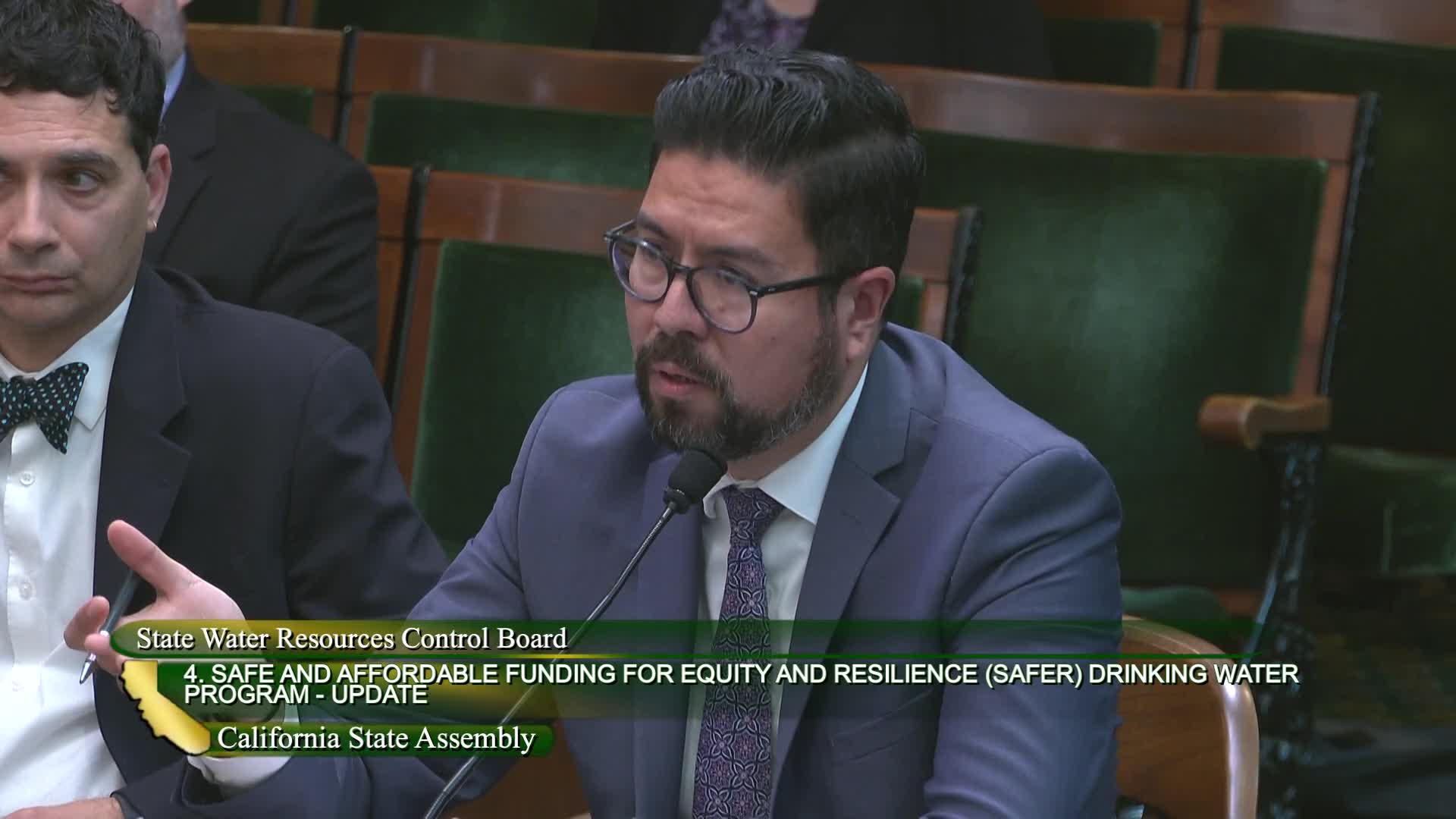
SGMA implementation and fee collection complicated by court action; DWR asks for temporary fund swap authority
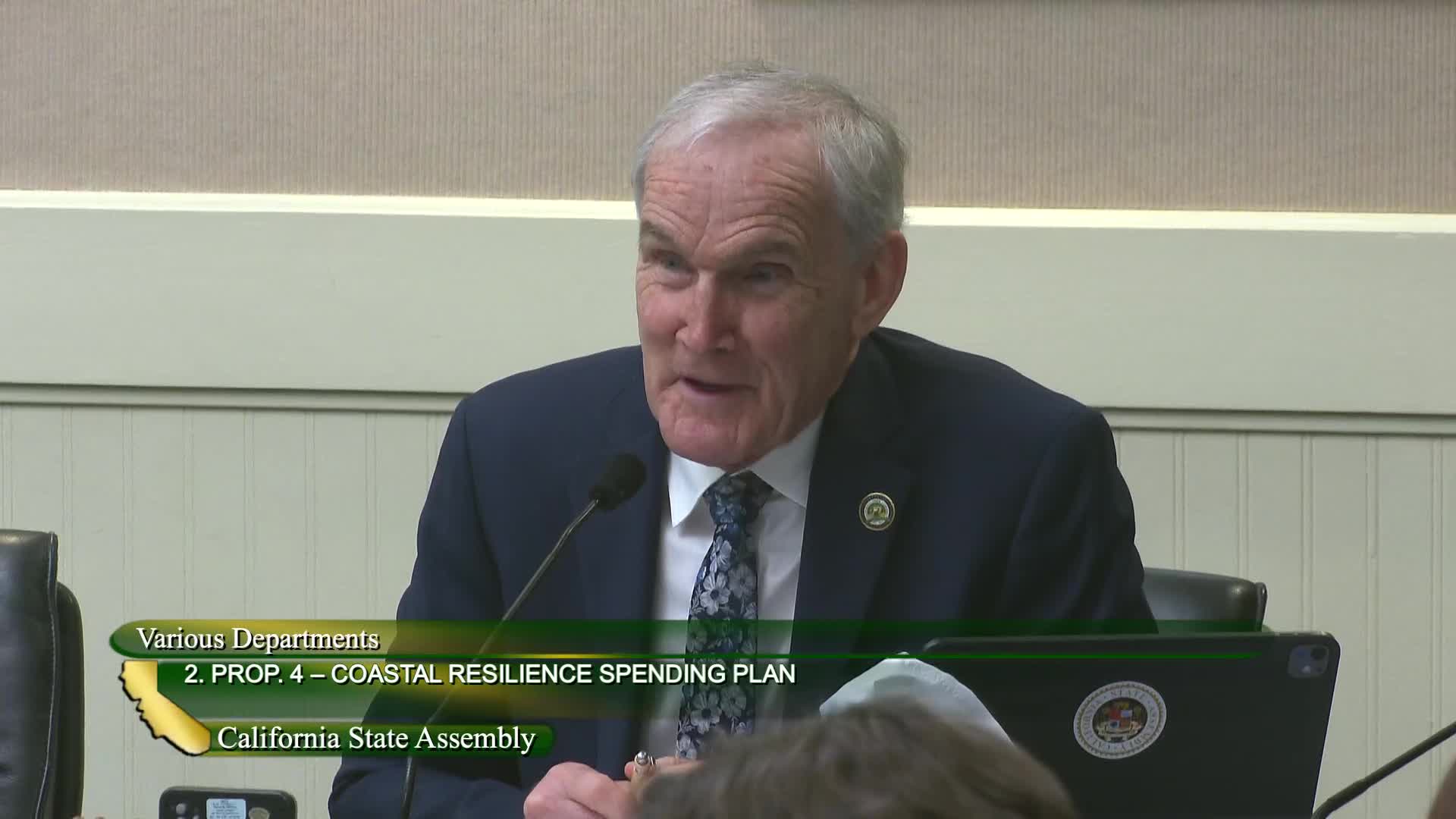
Fish and Wildlife outlines $75M climate-ready fisheries plan and $25M hatchery funding; requests targeted operational dollars
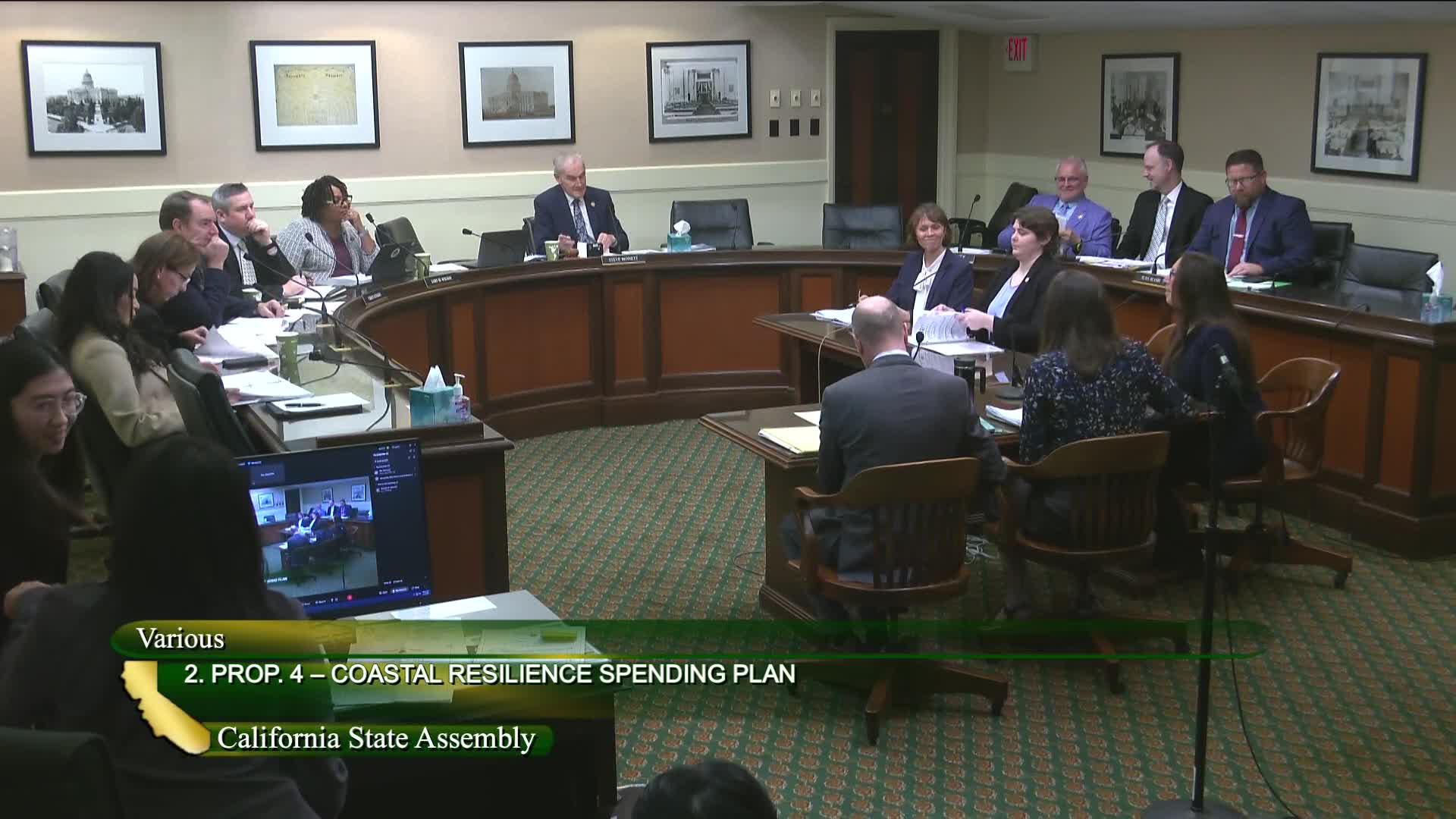
Ocean Protection Council and Coastal Conservancy outline phased Prop 4 rollout for sea-level rise and coastal resilience
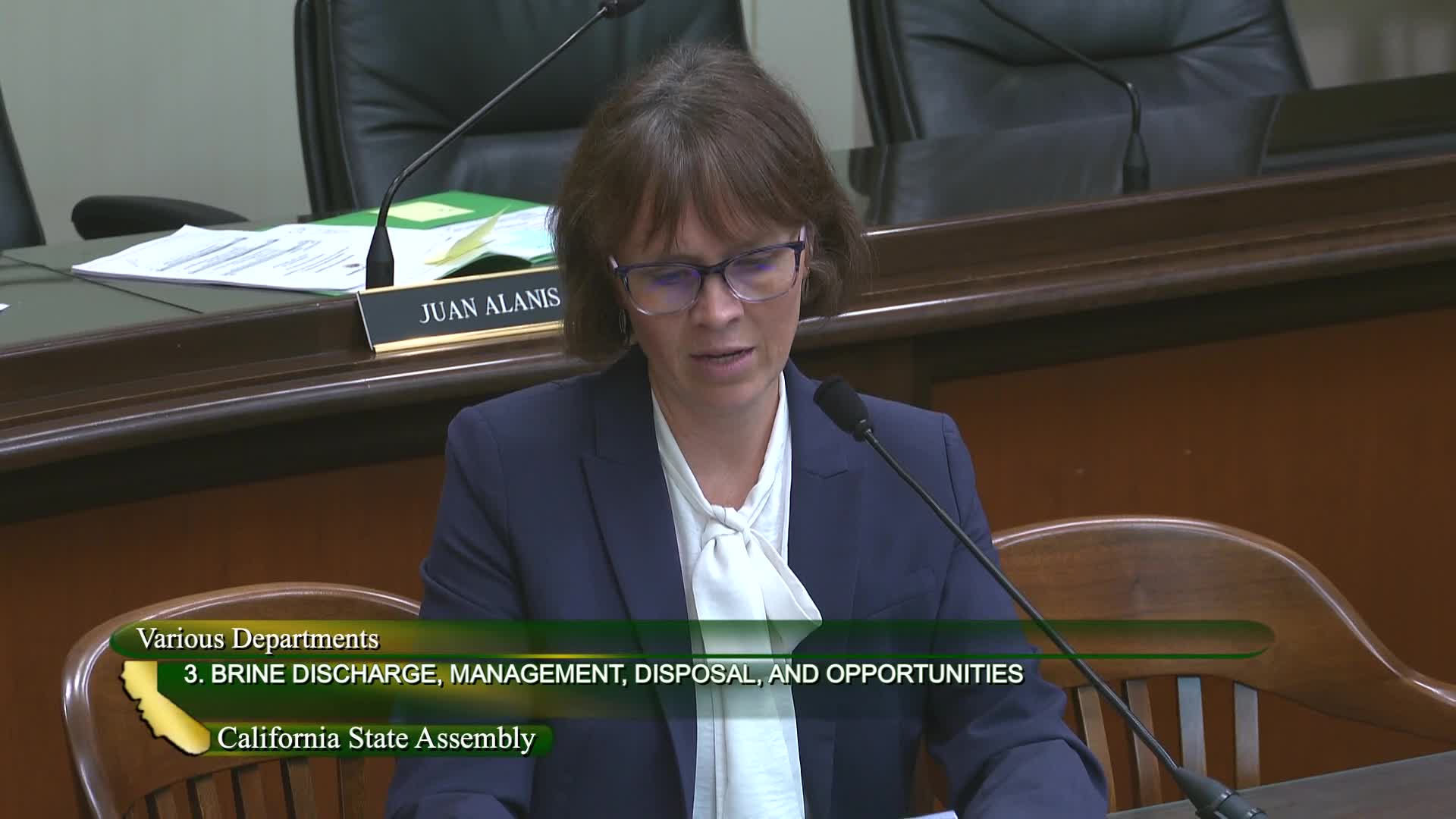
Lawmakers probe brine disposal risks as researchers pitch technologies to recover water, minerals and reduce costs
